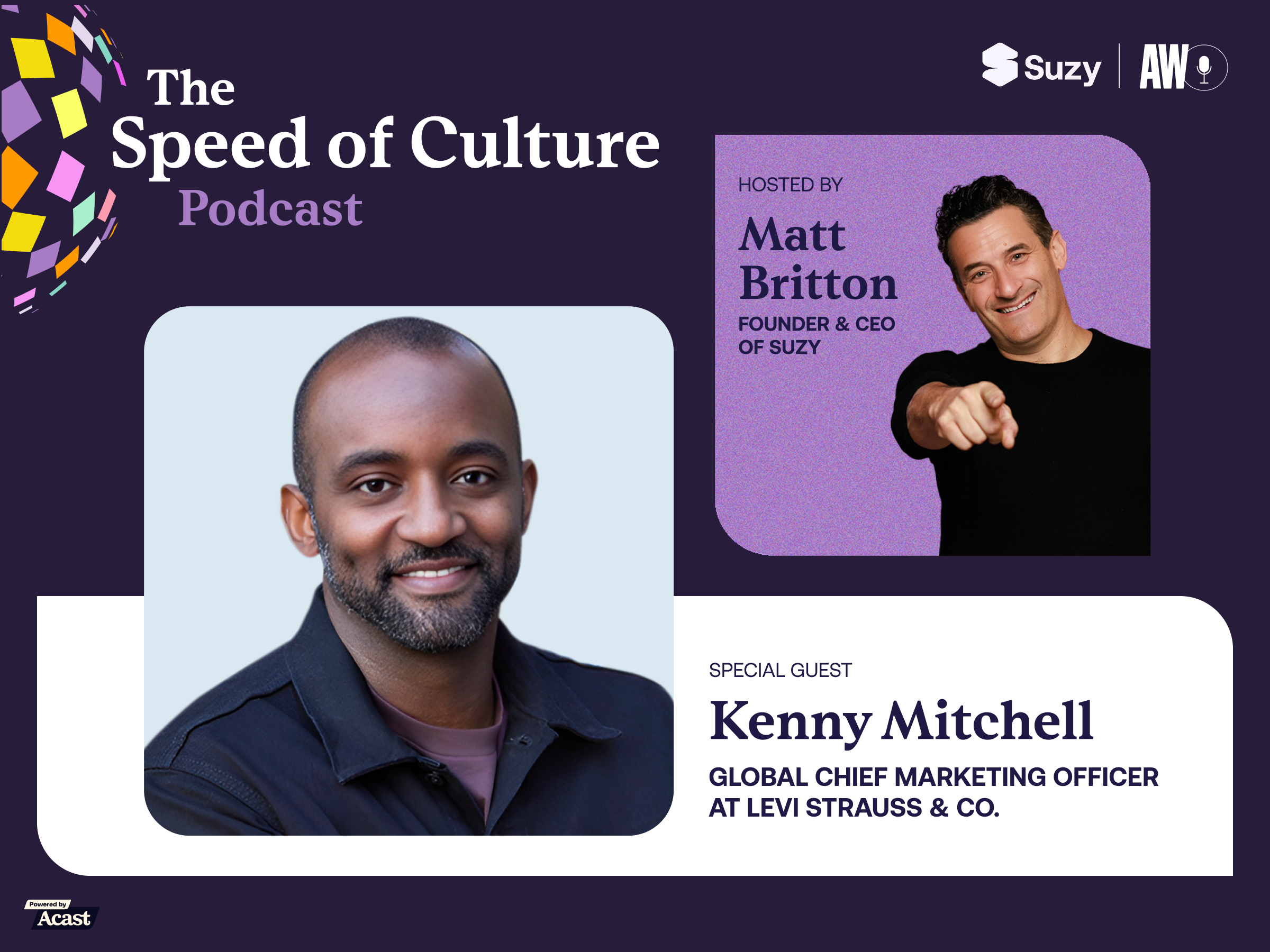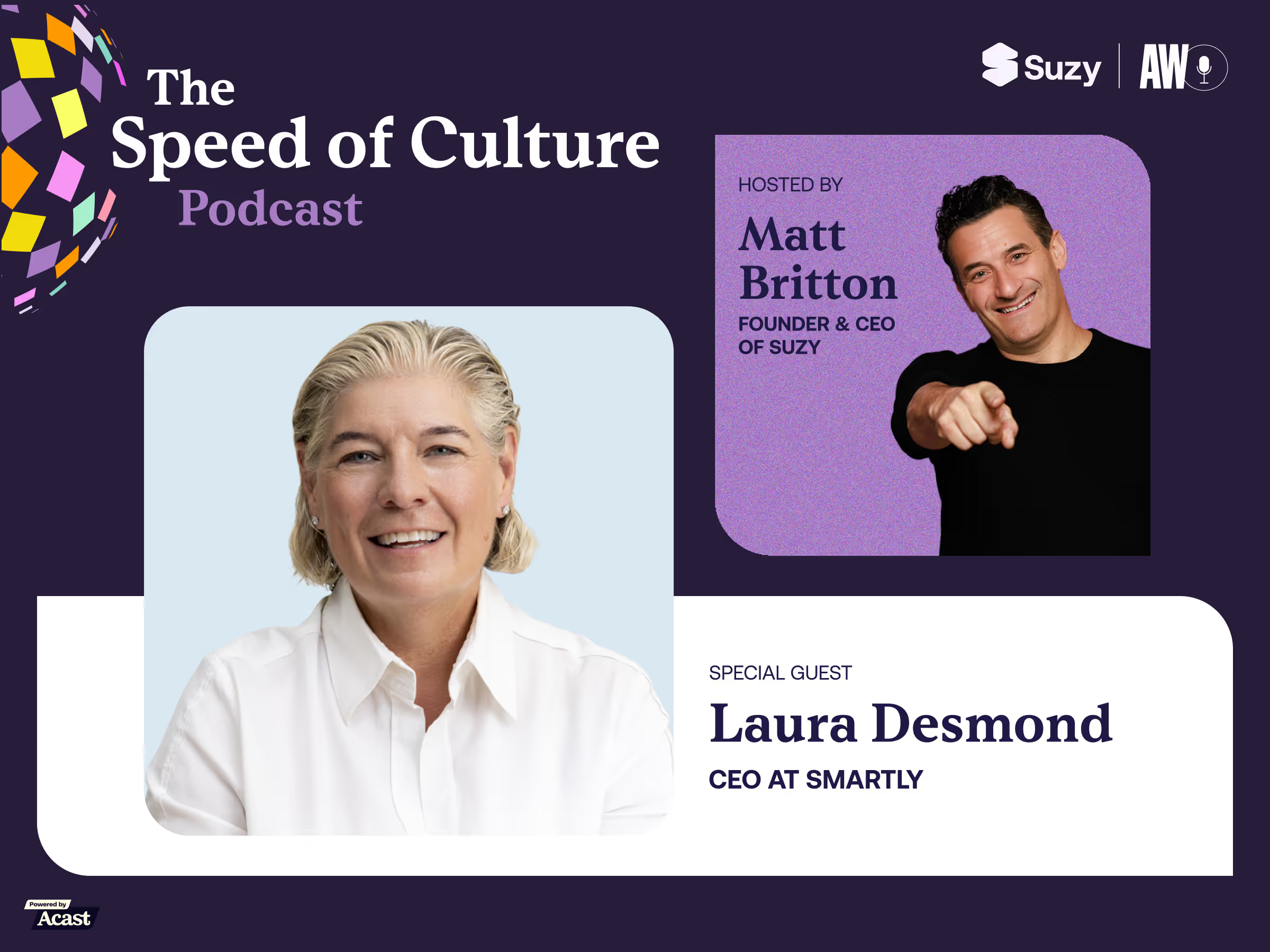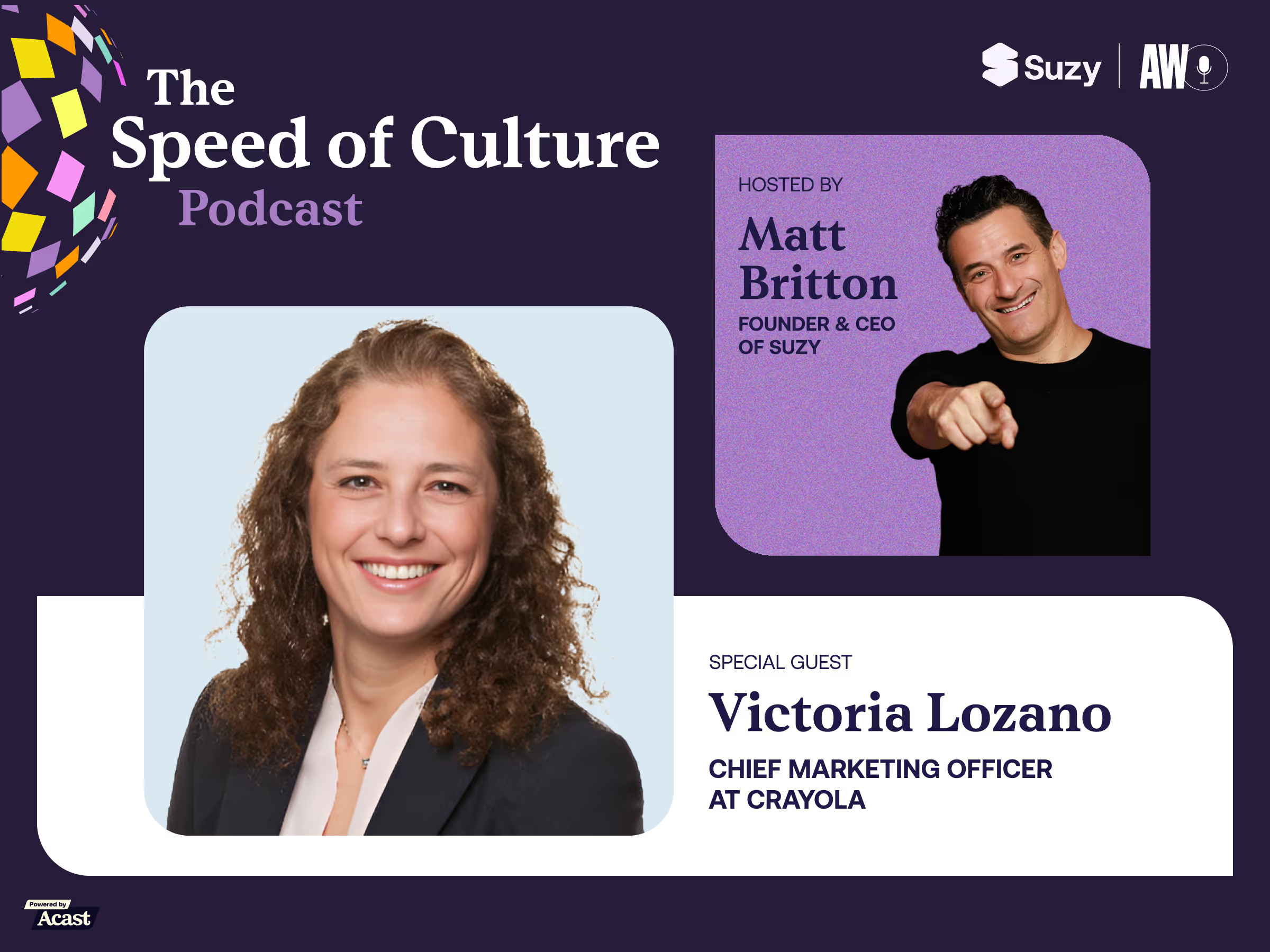Discover how leading brands use cultural relevance and real-time engagement to stay ahead in the market.
"Cultural relevance is not something you can always plan a year out. It’s those agile moments of responding to what consumers are talking about right now."
– Erin Goldson, PR & Influencer Marketing Lead at Unilever
In today's fast-paced market, brands need to do more than just sell products; they must connect with consumers on a deeper, cultural level. At the recent Brand Innovators event, hosted by NBC and moderated by Lauren Lanzi, VP of Customer Success at Suzy, leaders from major brands such as NBCU, Unilever, and Rémy Cointreau came together to share their insights on the evolving role of cultural relevance in brand success.
The Shift Toward Consumer-Centered Messaging
Yusuf Chuku, EVP, Client Advisory, Advertising & Partnerships, NBCUniversal reflected on how marketing has transformed over the years. "In the 90s, there was a notion that consumers lived in a vacuum, and brands could simply push their message through the noise," he recalled. "But today, marketers have to understand that consumers are engaged with everything happening around them—politics, pop culture, social issues. Brands need to harness that context for their advantage."
The challenge, however, is that culture can be like rocket fuel. It has the power to propel brands forward but also to blow up in their faces if mishandled. The key is understanding how to engage with culture authentically and meaningfully.
Cultural Relevance Through Agile Marketing
Erin Goldson, PR & Influencer Marketing Lead (Personal Care), Unilever, highlighted the importance of understanding consumers' day-to-day experiences. "Cultural relevance means getting outside of the boardroom and into the lives of our consumers. It's not just about talking to them; it's about participating in their world."
Goldson shared a powerful example from the COVID-19 pandemic. As frontline workers became a symbol of courage, Unilever's Dove brand responded with an agile campaign titled "Courage is Beautiful." The campaign showcased the marks left on healthcare workers' faces from wearing masks for long hours. This timely message resonated deeply with consumers and reinforced Dove’s core values of championing real beauty.
Building Long-Term Cultural Relevance
While reactive campaigns are valuable, brands must also think long-term about how they remain relevant to consumers. Vince Linchaa, Senior Brand Director at Rémy Cointreau, emphasized that brands need to align with existing consumer behaviors rather than attempting to change them. "It’s about injecting your brand into consumers' daily routines in a relevant way, making sure you're part of their repertoire."
One of the main challenges brands face is determining which cultural moments to engage in. Vince advises caution, "Not every cultural moment is right for every brand. It's important to ask whether you have a legitimate reason to be part of a particular conversation, and if not, it's okay to stay out."
Prioritizing the Right Audience
A key part of cultural relevance is understanding who your audience is and how to speak to them in a way that resonates. Vince shared a practical approach: "Define your core consumer architecture. For some brands, a multi-generational approach makes sense, while others benefit from a more targeted focus on a specific cohort. It depends on your brand’s resources and maturity."
Erin also addressed the importance of appealing to different generations, using Dove as an example. "Dove has been passed down in my family for generations, but how do we ensure it remains relevant to my children, who are now in college?" The answer lies in understanding what drives each generation and leveraging influencers who can speak directly to those audiences. By working with both Gen Z creators and older influencers, brands can ensure that their message resonates with a wide demographic.
The Importance of Authenticity
Both Yusuf and Erin stressed the importance of authenticity when engaging with cultural moments. "It’s not just about hopping on trends," Erin said. "Brands must respond in ways that make sense for their values and their story."
Yusuf offered a final word of wisdom for brands trying to navigate cultural relevance: "Brands fear being out of place, like the 'dad at the disco.' But if you know how to positively contribute to a cultural conversation, you will be welcomed." He encouraged brands to think about how they can add value to the cultural moments that matter to their audience.
Conclusion: Plan, Prepare, and Be Authentic
The key takeaway from the panel was that brands must be agile, authentic, and mindful of their role in culture. While it’s important to react to real-time cultural shifts, successful brands also take time to plan and prepare for how they will navigate these conversations in advance. As Erin noted, "Responding quickly requires planning for agility."
In an age where consumers are more culturally aware and engaged than ever, brands that authentically connect with their audience will not only stay relevant but thrive. It’s not just about being part of the conversation—it's about having something meaningful to say.
For more takeaways and industry insights, be sure to watch the full session today!
.webp)







